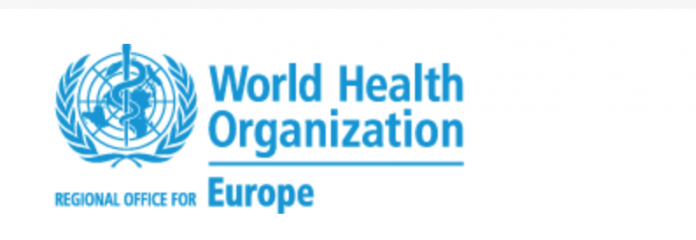The COVID-19 pandemic is impacting the global population in drastic ways. In many countries, older people are facing the most threats and challenges at this time. Although all age groups are at risk of contracting COVID-19, older people face significant risk of developing severe illness if they contract the disease due to physiological changes that come with ageing and potential underlying health conditions.
“Supporting and protecting older people living alone in the community is everyone’s business,” said Dr Hans Henri P. Kluge, WHO Regional Director for Europe, addressing journalists at a virtual press briefing today. “I am reminding governments and authorities that all communities must be supported to deliver interventions to ensure older people have what they need. All older people should be treated with respect and dignity during these times. Remember, we leave no one behind.”
In his opening statement, Dr Kluge gave key figures related to the development of COVID-19 in the population of older people. “Older adults are at a significantly increased risk of severe disease following infection from COVID-19. This is an important observation for the European Region: of the top 30 countries with the largest percentage of older people, all but one (Japan) are our Member States in Europe. The countries most affected by the pandemic are among them.”
Over 95% of these deaths occurred in those older than 60 years. More than 50% of all fatalities involved people aged 80 years or older. Reports show that 8 out of 10 deaths are occurring in individuals with at least one comorbidity, in particular those with cardiovascular disease, hypertension and diabetes, but also with a range of other chronic underlying conditions.
Together with a panel of experts – Manfred Huber, Coordinator, Healthy Ageing, Disability and Long-Term Care at WHO/Europe; Catherine Smallwood, Senior Emergency Officer at WHO/Europe; and Alana Officer, Unit Head, Demographic Change and Healthy Ageing at WHO Headquarters – Dr Kluge answered questions on the challenges faced by the older population and those who support and care for them in the context of the COVID-19 outbreak.
Support for older people, their families and their caregivers is an essential part of the countries’ comprehensive response to the pandemic. During times of isolation and quarantine, older people need safe access to nutritious food, basic supplies, money, medicine to support their physical health, and social care. Dissemination of accurate information is critical to ensuring that older people have clear messages and resources on how to stay physically and mentally healthy during the pandemic and what to do if they should fall ill.
The panelists’ responses highlighted the importance of maintaining a healthy lifestyle while in self-quarantine or in isolation. Older people are often dependent on the support from communities and carers in maintaining daily routines, staying active, and eating nutritious, balanced meals. Mental health during anxious times is also a key consideration. Finding ways to stay socially connected is even more important for this age group as many do not have easy access to digital platforms. Dr Kluge conveyed a special message to younger viewers: “If keeping your grandparents safe means you can’t visit them in person, talk to them every day so that they don’t feel alone. Physical distancing is not social isolation.”
Health and social care workers play a critical role in providing long-term care to older people. “Already prior to the COVID-19 pandemic, they worked in challenging conditions, whether in the community or in nursing home facilities … The current situation is a painful reminder not to cut budgets for essential services,” Dr Kluge emphasized. “Our heroes, frontline people like nurses and health care workers, give the best of themselves every day – we must provide them with the right information, training and personal protective equipment”.
In closing, Dr Kluge summed up his 3 key messages underscoring that combating COVID-19 is a collective responsibility:
- While older people are at highest risk from COVID-19, all of us, at all ages, need to act in solidarity to prevent further community spread of the virus.
- It is crucial that we support all health and social care workers equally and give special attention to those who provide nursing and social care services for older people.
- Supporting and protecting older people living alone in the community is everyone’s business.

